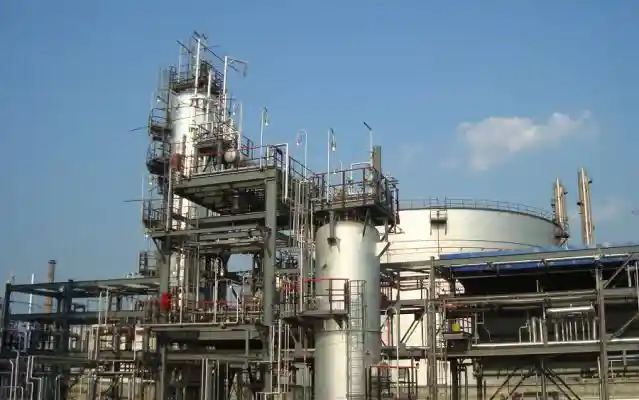The Nigerian National Petroleum Company Limited (NNPCL) has officially denied reports of an explosion at the Warri Refining and Petrochemical Company (WRPC). In a statement released by NNPCL’s Chief Corporate Communications Officer, Olufemi Soneye, the company clarified that the refinery is operating normally, with ongoing routine maintenance work to enhance efficiency and ensure steady fuel production.
Despite widespread speculation, NNPCL reassured the public that there was no fire, explosion, or disruption to fuel supply. The Warri Refinery continues to load eight trucks of diesel and kerosene per day, ensuring that petroleum products remain available to Nigerians.
This article explores NNPCL’s response, the role of the Warri Refinery, and how ongoing maintenance supports Nigeria’s energy security.
No Explosion at Warri Refinery: NNPCL’s Official Statement
Following concerns over unverified reports, NNPCL issued an official statement on February 9, 2025, clarifying that:
“NNPCL Ltd. wishes to state categorically that there was no explosion at the Warri Refining and Petrochemical Company (WRPC). Any reports suggesting otherwise are entirely false.”
The statement further explained that on January 25, 2025, NNPCL initiated routine maintenance activities at WRPC Area 1 to:
✔ Enhance operational efficiency and ensure smooth production.
✔ Improve the quality of finished products such as diesel and kerosene.
✔ Conduct preventive maintenance on key equipment.
Despite this temporary adjustment, NNPCL emphasized that fuel distribution remains steady, with an average of eight trucks of diesel and kerosene loaded daily.
Understanding the Importance of Warri Refinery
The Warri Refining and Petrochemical Company (WRPC) is one of Nigeria’s three major refineries, alongside those in Port Harcourt and Kaduna. It is vital to the country’s energy infrastructure, helping to meet domestic fuel demand and reduce dependency on imported petroleum products.
Key Facts About Warri Refinery
| Feature | Details |
|---|---|
| Location | Delta State, Nigeria |
| Processing Capacity | 125,000 barrels per day |
| Main Products | Diesel, Petrol, Kerosene, LPG |
| Operator | NNPCL |
Given its strategic importance, NNPCL has been making significant investments in maintenance and upgrades to ensure consistent fuel production.
How Routine Maintenance Strengthens Nigeria’s Fuel Supply
1. Preventing Unplanned Shutdowns
????️ Regular maintenance prevents equipment failures and production delays. By addressing minor technical issues early, NNPCL ensures that Nigeria’s fuel supply remains stable.
2. Ensuring Product Quality
???? Maintenance allows the refinery to produce high-quality fuel that meets both domestic and international standards. This is crucial for efficient engine performance and environmental protection.
3. Strengthening Energy Security
⚡ A well-maintained refinery reduces Nigeria’s dependence on imported petroleum products, ensuring greater self-sufficiency and price stability in the energy sector.
| Maintenance Benefit | Impact on Nigeria |
|---|---|
| Prevents unexpected breakdowns | Ensures continuous fuel supply |
| Improves fuel quality | Meets domestic & export standards |
| Enhances refinery efficiency | Reduces reliance on fuel imports |
Why Misinformation About Refineries Spreads Quickly
False reports about refinery incidents can cause unnecessary panic and speculation. Here’s why misinformation spreads so fast:
1. Social Media Amplification
???? Misinformation often spreads rapidly on Twitter, Facebook, and WhatsApp, before official sources can respond.
2. Fear of Fuel Shortages
⛽ Many Nigerians remember past fuel shortages, making them more likely to believe rumors about refinery shutdowns.
3. Sensational News Coverage
???? Some media platforms publish unverified reports to attract more readers, adding to the confusion.
How to Identify Reliable News Sources
✔ Check official statements from NNPCL, government agencies, or reputable media houses.
✔ Be cautious of social media rumors and cross-check information before sharing.
✔ Look for direct quotes and data from industry experts rather than speculation.
NNPCL’s Commitment to Transparency and Fuel Supply Stability
To prevent misinformation and ensure public confidence, NNPCL is taking proactive steps to keep Nigerians informed about refinery operations.
What NNPCL Is Doing:
- ✅ Regular updates on maintenance activities to ensure transparency.
- ✅ Continuous fuel supply monitoring to prevent shortages.
- ✅ Investment in refinery upgrades to improve efficiency.
“NNPCL remains committed to ensuring uninterrupted product supply and appreciates the patience and cooperation of all stakeholders as we complete these essential maintenance activities.” – Olufemi Soneye, NNPCL Chief Corporate Communications Officer
Beyond the Headlines: Why Misinformation About Refineries Matters
Misinformation—especially in critical industries like energy and oil refining—can have serious economic and social consequences. In Nigeria, where fuel supply is a crucial factor in daily life, false reports of refinery incidents can:
- Trigger Panic Buying & Hoarding:
- Fear of supply disruption often leads to artificial fuel shortages, causing prices to rise unnecessarily.
- This was seen in 2023 when false reports of refinery downtime led to long queues at filling stations, despite no actual supply disruption.
- Affect Public Trust in Institutions:
- When NNPCL or other official bodies must constantly debunk false reports, it reduces public confidence in legitimate updates.
- People become less likely to trust official statements, increasing reliance on social media rumors.
- Impact Investor Confidence:
- Nigeria’s oil and gas industry is a key driver of foreign investment.
- False reports of refinery instability can negatively impact stock market confidence and foreign investment in energy projects.
- Disrupt Business Operations:
- Transport, logistics, and manufacturing sectors rely heavily on petroleum products.
- Misinformation about refinery issues can cause businesses to increase prices, affecting the broader economy.
| Misinformation Effect | Real-World Impact |
|---|---|
| Panic buying | Long queues, artificial fuel shortages |
| Loss of trust in NNPCL | Increased reliance on social media rumors |
| Investor hesitancy | Delays in funding for energy projects |
| Economic impact | Rising fuel prices, transport cost increases |
Conclusion: Stability at Warri Refinery, No Explosion
The NNPCL has confirmed that Warri Refinery is operating normally, with ongoing routine maintenance work to improve efficiency.
Key Takeaways
✔ No explosion occurred at Warri Refinery – reports were false.
✔ Operations continue, with fuel supply remaining stable.
✔ NNPCL is investing in maintenance and upgrades to ensure long-term refinery reliability.
✔ Nigerians should rely on official sources for refinery-related news to avoid unnecessary panic.
ALSO READ : Dropbox Visa Service Suspended in Nigeria: What You Need to Know
NNPCL’s commitment to transparency and stability is essential in ensuring Nigeria’s energy security. As maintenance progresses, the public can be assured that fuel supply remains uninterrupted and that refinery operations will continue to support Nigeria’s growing energy demands.











